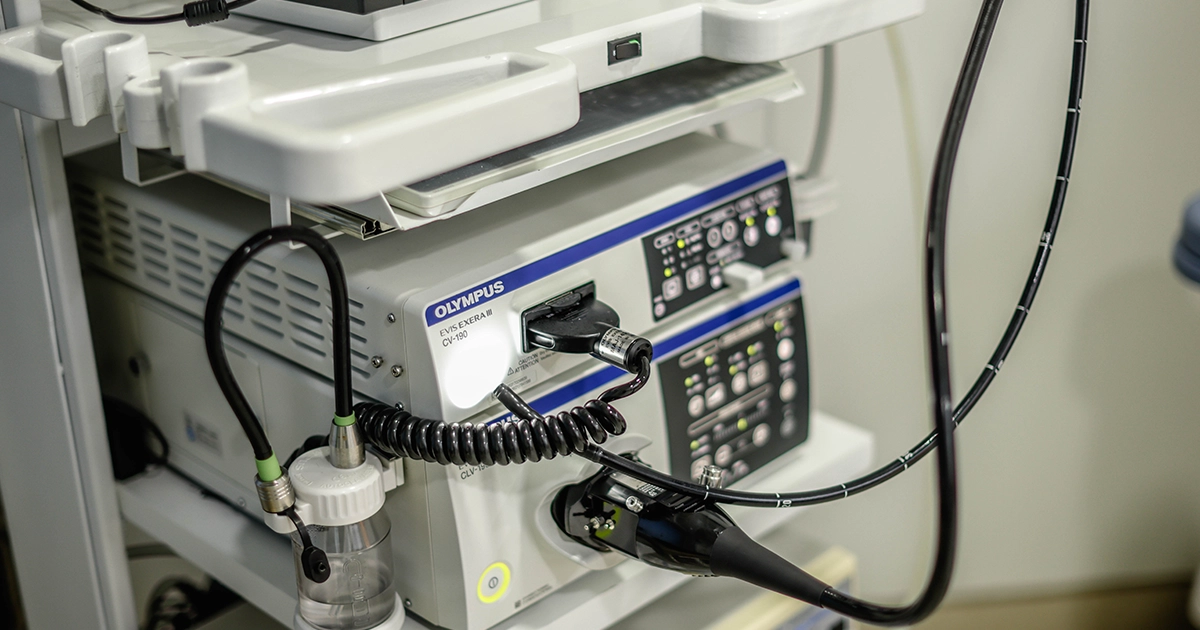
Endoscopy is a modern, minimally invasive method of instrumental diagnostics, which enables the examination of internal hollow organs using special modern, high-resolution flexible video endoscopes, both under local and intravenous or general anesthesia that ensures the patient's comfort during the examination. Endoscopic examination helps the doctor to establish a final diagnosis and is used for therapeutic and surgical purposes. If necessary, tissue samples can be taken through the endoscope for cytological, histological and bacteriological examination. Endoscopic examination helps the doctor to establish a final diagnosis and is used for therapeutic and surgical purposes. If necessary, tissue samples can be taken through the endoscope for cytological, histological and bacteriological examination.
Institute of Clinical Oncology provides the following endoscopic examinations.
● Laryngoscopy - nasal, mouth, larynx examination.
● Bronchoscopy - examination of bronchi and trachea.
● Esophagogastroduodenoscopy – examination of esophagus, stomach, duodenum.
● Colonoscopy – complete examination of the colon.
● Cholangioscopy – bile duct examination .
● Wirsungoscopy - pancreatic (abdominal salivary gland) duct examination
Diagnostic and Surgical procedures:
● To diagnose mucosa inflammatory diseases, such as both acute and chronic (ulcers, erosions) purulent processes.
● Early detection of neoplasms in organs being examined
● Identification of bleeding foci and their treatment.
● Detection of helicobacter pylori through biopsy
● Restoration of organ conductivity by expanding narrowed areas.
● Insertion of weight-losing balloon into the stomach.
● Papillosphincterotomy and removal of stones from bile duct.
● Detection of polyps (benign tumors) and their removal endoscopically (polypectomy).
● Detection of malignant tumors.
● Defection and removal of foreign bodies.
Benefits of endoscopic examination
● Examination of the organ through a minimally invasive method.
● Fast and accurate diagnosis.
● No radiation exposure.
● Possibility of performing biopsies and a number of medical procedures.
● Avoiding the necessity of performing open surgeries
● Collection of secretions and fluids for analysis.
● Detection of pathologies at early stages.
● Removal of small neoplasms.
● Storing of images and videos for further follow-up in dynamics.
● Endoscopy is a universal method that can be used for primary, screening and differential diagnosis.
Dont miss Koi news